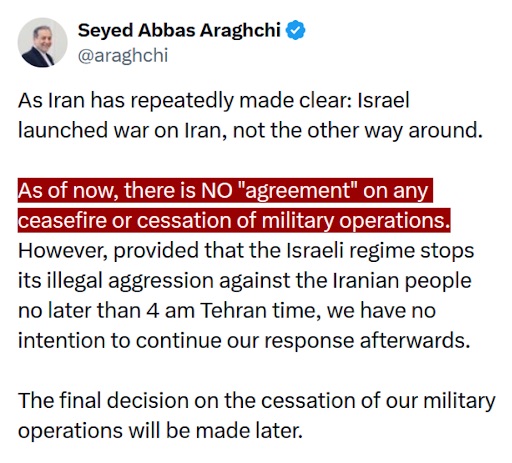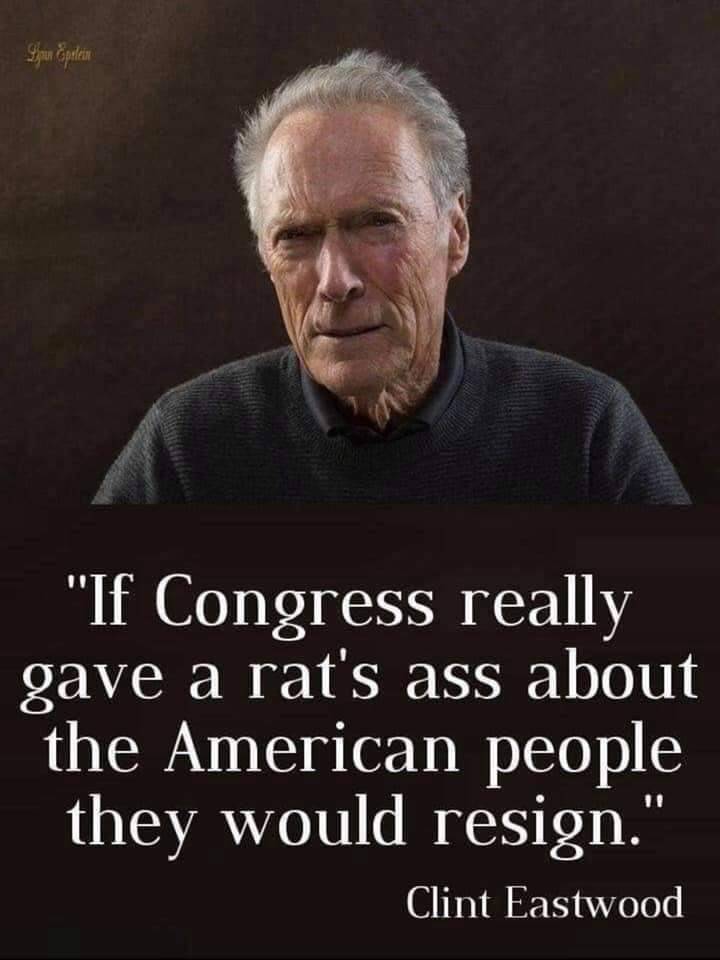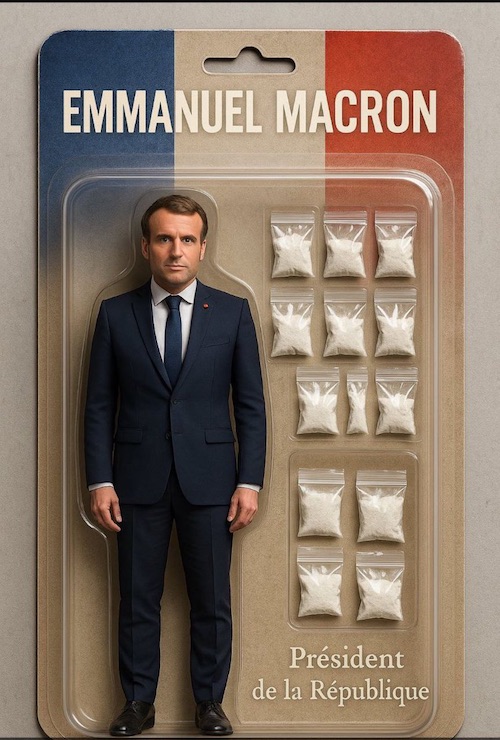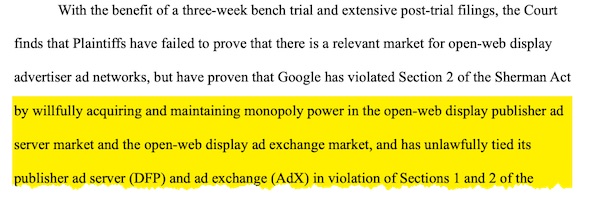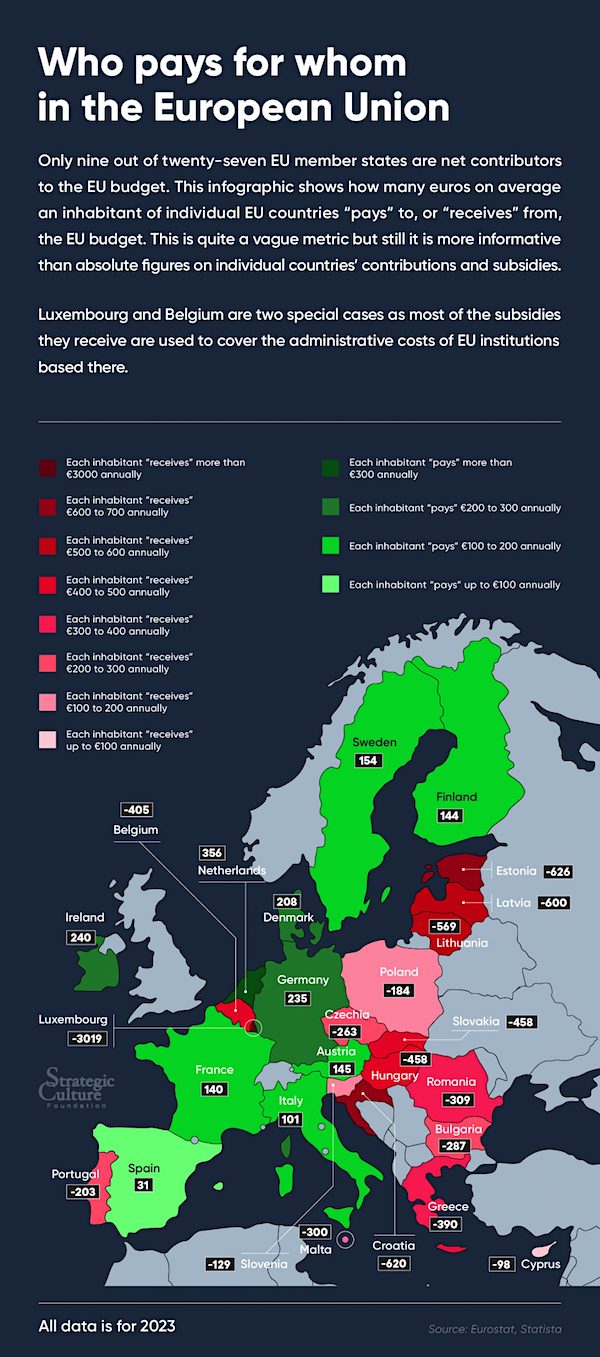
Salvador Dali Neo-Cubist Academy (Composition with Three Figures) 1926


Everybody who voted against the One Big Beautiful Bill voted to raise taxes on the American people by $4.3 trillion.
That’s just a fact. pic.twitter.com/EgdPpYN9Il
— John Kennedy (@SenJohnKennedy) July 11, 2025
When you tax something, you get less of it.
If you don’t want businesses to expand, tax the hell out of them.
If you don’t want people to work, take their money.
That’s why it’s so important that we passed the One Big Beautiful Bill and blocked a $4.3 trillion tax hike. pic.twitter.com/0JLwFrG5VU
— John Kennedy (@SenJohnKennedy) July 10, 2025
Jeffrey Epstein victim attorney Sigrid McCawley drops a bombshell accusing Pam Bondi’s DOJ of withholding a treasure trove of evidence including names of co-conspirators, financial records, and multiple computers.
She says the department has every piece of information on who… pic.twitter.com/INSYaCaRXJ
— Shadow of Ezra (@ShadowofEzra) July 10, 2025
#Brazil is one of the worst countries in the world in terms of trade barriers.
Lula should lift the country's trade barriers instead of complaining.
The worst ranked in the Trade Barriers Index 2023: India (#88 of 88 countries)
Russia (#87)
Indonesia (#86)
Argentina with… pic.twitter.com/7a0wAtjHTJ— Daniel Lacalle (@dlacalle_IA) July 11, 2025
Benz
https://twitter.com/jayplemons/status/1943353450101878963
Scott
If you trust Trump, you have to also trust him to lie to you when it's in your best interest.@ScottAdamsSays “If you know the CIA exists and haven’t demanded its end, then you've accepted that your government can lie to you.”
Is Trump hiding the truth for our good or even… pic.twitter.com/VztQEGdBss
— jay plemons (@jayplemons) July 10, 2025
Reagan
https://twitter.com/mcucolo57/status/1943379084051927438


“This isn’t just about how Epstein died; it’s about whether the deep state inside the Department of Justice can finally be exposed and held to account.”
• Bongino and Patel May Resign If Pam Bondi Stays As Attorney General (Margolis)
FBI Deputy Director Dan Bongino is on the verge of walking away from the bureau over what insiders are calling a full-blown crisis of confidence. According to a source close to Bongino who spoke with The Daily Wire, he’s issued an ultimatum: either Attorney General Pam Bondi goes or he does. The standoff stems from Bongino’s growing frustration with Bondi’s handling of the Jeffrey Epstein files, which he sees as a betrayal of the public’s right to the truth. The source says Bongino is “furious” and feels that he can’t in good conscience continue working alongside Bondi. After taking the job in February, he had hoped to help restore trust in the FBI, but Bondi’s alleged stonewalling has made that mission impossible. “He’s done if she stays,” the source said bluntly. “He’s not backing down.”
As PJ Media previously reported, Bongino’s frustration with Bondi has reached a breaking point over her handling of the Epstein investigation. Once promising a bombshell about Epstein’s so-called “client list,” Bondi has since backpedaled, claiming she was misunderstood and that the “file” on her desk was just routine paperwork. The DOJ, under her leadership, now insists there’s no evidence of a client list, no sign of blackmail, and no indication Epstein was murdered. For those demanding answers, this reversal isn’t just disappointing; it’s infuriating. But the story has gotten even bigger. According to independent journalist Nick Sortor, FBI Director Kash Patel is also considering resigning if Bondi stays on and Bongino leaves.
Axios previously reported that both Bongino and FBI Director Kash Patel are “furious” with Bondi over the blowback her handling of the Epstein files has caused them. Bongino reportedly did not come into work on Friday. This isn’t some petty bureaucratic spat; it’s a crisis of trust. Bongino’s absence from the FBI after a heated exchange with Bondi signals how serious things have become. His once-busy social media has gone silent. One source close to him summed it up: “He ain’t coming back.” Officially, the administration claims he’s still on the job, but the writing is on the wall.
The DOJ’s memo concluding there was no client list was a slap in the face to anyone who’s paid attention. No client list? No blackmail? No reason to investigate further? That’s not a conclusion; it’s a cover-up. Epstein’s entire operation was built on compromising the elite. To suggest that he acted alone defies logic and insults the intelligence of the American people. What this country needs right now isn’t more spin or bureaucratic buck-passing — we need the truth. Real answers. Real accountability. Not some carefully worded memo designed to dodge the most damning questions. Bongino and Patel understand exactly what’s at stake. This isn’t just about how Epstein died; it’s about whether the deep state inside the Department of Justice can finally be exposed and held to account.

It looks very bad on Trump if he loses Patel and Bongino, just like it looked good when he brought them in. Bondi has a much more chequered past. But he won’t want to let her go either.
• Tensions Explode Between Bongino And Bondi Amid DOJ Epstein Memo Fallout (ZH)
Speculation is mounting that FBI Deputy Director Dan Bongino is furious over the Department of Justice’s explosive memo concerning Jeffrey Epstein, with anonymous sources claiming he has issued a stark ultimatum to the White House: dismiss Attorney General Pam Bondi or he will resign from his position. Axios, citing four sources familiar with the matter, reported Friday morning that FBI Deputy Director Dan Bongino was absent from work following a heated confrontation with Attorney General Pam Bondi over the handling of the Jeffrey Epstein files. The Washington insider outlet noted that Bongino’s absence sparked speculation about whether he had resigned, though a White House source quickly clarified that he remains in his role at the FBI.
This week, federal law enforcement released a memo asserting that an “exhaustive review” of evidence from Jeffrey Epstein’s death at the Metropolitan Correctional Center in New York City conclusively ruled out murder. “Following a comprehensive investigation, FBI investigators determined that Jeffrey Epstein died by suicide in his cell on August 10, 2019,” the memo stated. The agencies also firmly denied the existence of a “client list” linked to Epstein, directly contradicting earlier statements by Attorney General Pam Bondi. Bondi had previously claimed on Fox News that such a list was “sitting on my desk” for review, fueling speculation about Epstein’s alleged blackmail of global elites.
By Friday afternoon, reports indicated that tensions between FBI Deputy Director Dan Bongino and Bondi were escalating, with the FBI official reportedly contemplating resignation if Bondi remains in her role. “Source close to Dan Bongino tells me it’s either him or Pam Bondi, and that he won’t stay at FBI if she stays at DOJ,” The Daily Wire’s White House correspondent Mary Margaret Olohan posted on X. Independent journalist Julie Kelly corroborated Olohan’s reporting, writing on X: “Sources confirm to me the blow up between Dan Bongino and Pam Bondi is very real. This has been brewing for four months and came to a head at the White House on Wednesday.”
https://twitter.com/julie_kelly2/status/1943724569333788760?ref_src=twsrc%5Etfw%7Ctwcamp%5Etweetembed%7Ctwterm%5E1943724569333788760%7Ctwgr%5E282c62e15638351eb281e156bb768b0bd8ae9c8e%7Ctwcon%5Es1_c10&ref_url=https%3A%2F%2Fwww.zerohedge.com%2Fpolitical%2Ftensions-explode-between-bongino-and-bondi-amid-doj-epstein-memo-fallout-reports
https://twitter.com/julie_kelly2/status/1943726798488936588?ref_src=twsrc%5Etfw%7Ctwcamp%5Etweetembed%7Ctwterm%5E1943726798488936588%7Ctwgr%5E282c62e15638351eb281e156bb768b0bd8ae9c8e%7Ctwcon%5Es1_c10&ref_url=https%3A%2F%2Fwww.zerohedge.com%2Fpolitical%2Ftensions-explode-between-bongino-and-bondi-amid-doj-epstein-memo-fallout-reports
“He has not been in the office since. Most of the frustration at [the] FBI relates to her handling of Epstein disclosures and disputes between [the] FBI and Bondi about how to proceed,” Kelly continued. “Bongino appears ready to resign imminently if Bondi remains in office,” she added.Fox News sought comment from the White House on whether President Donald Trump was satisfied with Bondi, to which Press Secretary Karoline Leavitt responded that the president is “proud” of his attorney general. “The President is proud of the attorney general’s efforts to execute his Make America Safe Again agenda, restore the integrity of the DOJ, and bring justice to the victims of crime,” Leavitt said.
“The continued fixation on sowing division in President Trump’s cabinet is baseless and unfounded in reality.” On Tuesday, Trump dismissed questions about Epstein during a press exchange. “Are you still talking about Jeffrey Epstein? This guy’s been talked about for years,” Trump said, while taking questions during a Cabinet meeting. “You’re asking – we have Texas, we have this, we have all of the things, and are people still talking about this guy? This creep? That is unbelievable. I mean, I can’t believe you’re asking a question on Epstein at a time like this, where we’re having some of the greatest success and also tragedy with what happened in Texas. It just seems like a desecration.”

“..he believes that the Biden administration intentionally destroyed the Epstein client files to protect powerful individuals.”
• Is This What Happened to the Epstein Client List? (Margolis)
Every time the topic of Jeffrey Epstein’s infamous client list surfaces, the American public is treated to a familiar dance: officials dodge, the media obfuscate, and the powerful breathe a sigh of relief. After years of waiting for the Epstein client list to see the light of day, the Trump administration says the list doesn’t exist. On Thursday, Alan Dershowitz came out and said that’s not true and that he saw it when he had to defend himself from false accusations of being an Epstein client. If the list does exist, what happened to it? Rep. Tim Burchett (R-Tenn.) has a theory. In a recent interview with NewsNation, Burchett told host Leland Vittert that he believes that the Biden administration intentionally destroyed the Epstein client files to protect powerful individuals.
“I think the files existed at one time,” Burchett said. “I think they were destroyed in the previous administration… and if they’d ever had anything on Trump, it would have been out day one under the Biden administration.” When Vittert agreed, Burchett continued, suggesting that the real reason the files remain hidden is because of who they might implicate. “I think there’s some very prominent people. There’s Hollywood people, but I think there’s world leaders too. And would it have caused economic disruption around the globe? Maybe. But I don’t really care.” Vittert asked if the hesitation to release names might be due to fear of unjustly tarnishing people who may have interacted with Epstein but did nothing wrong. Burchett rejected the idea and instead pointed to Ghislaine Maxwell’s conviction:
“What’s Ms. Maxwell doing in jail? What did she do? Where is that… you know, who did she provide whatever she did? Why is she in jail? That’s gotta be a question that should be asked at some point.” He was blunt about the finality of the situation: “Dead men tell no tales. He’s dead.” Vittert pressed him to clarify: Was he saying that the Trump administration destroyed the files? “No, I think they destroyed everything,” Burchett replied, referring to the Biden administration. When Vittert asked former special prosecutor Pam Bondi wouldn’t say that directly, Burchett speculated, “Because she doesn’t have any proof of it. I’m just telling you what I think.” He went on to criticize Bondi’s handling of the situation. “I think she’s got over her skis pretty much, saying all this stuff — ‘The files are on my desk. I’m gonna release it.’ — and then she releases stuff that I knew.”
Burchett said he based his belief on his own instincts and experience in Washington. “I’ve been around this town enough. I just don’t think they exist. I think they did at one time.” He tied it back to the Hunter Biden laptop scandal: “You got an administration that lied and said Hunter Biden’s laptop didn’t exist… You had 30 of the top so-called intelligence people in the country say that, and they didn’t get chastised by anybody but y’all and a couple of others.” Burchett doesn’t trust the official story and doesn’t believe that the truth about Epstein will ever come out.

“We’re trapped in a structure. We named the Structure ‘Jeffrey Epstein’.” — Eric Weinstein
• Flux Rules (James Howard Kunstler)
No one in America — not even the most deranged, spike-faced, pink-haired transtifas — believes the latest Epstein story as played out by Mr. Trump and AG Bondi in this week’s cabinet parlay: nuthin to see, just a bunch of pointless child porn, fuggeddabowdit. . . But stay! Much is moving, flowing unseen. The world is yugely in flux, large events in human affairs are in motion, many things are breaking, rotating, dissolving and re-forming, while others wind into giant hairballs. . . so many players acting as though they live in one great hall of mirrors, and treachery abides at every turn. Nobody seems to be actually managing any of it, though there is plenty of pretense, jockeying, staging. The public’s anger and anxiety rise in tandem.
One thing about Epstein is likely certain: it was an intel operation. And one thing is probable: it was a joint operation between the CIA, Israel’s Mossad, and the UK’s MI6. The object: to get as many political poohbahs on-the-hook for disgraceful behavior of the lowest kind and blackmail-able. Under the thumb. Theories and suppositions abound. If Mr. Trump was in on the Epstein sex shenanigans, as Elon blurted this week, why did the Democratic Party not go after him for it in three election campaigns (and all the many months in between)? Well, not to put too fine a point on it, Elon appears to be losing his shit. His CEO at “X” bailed on him this week. His A-I app, Grok, started spouting Hitler gags, and his empire of world-beating genius is tottering on a broken business model.
You can write all that Elon stuff off as a sideshow for now — wildly grotesque as it may be. But what is actually going on in the three rings of this circus? Flux in the Middle East is one. Whatever else the “Twelve Day War” was about, it’s the end of Israel threatening to bomb Iran’s nuke program out of existence. We’ve done that favor for them, or pretended to, as some are saying, kabukied it out. So, Israel, shut up about that for now . . . is the policy. One story is that the actual Epstein material, whatever still exists, that is, which might reside in multiple locations, is so destructive to the architecture of global leadership that it must be squelched for the sake of majorly realigning forces, tensions, and polities across the Middle East, namely, the Abraham Accords. Getting all that lined up is more important to Mr. Trump for the moment than defenestrating the various perverts-in-office around Western Civ. It just is. . . so. . . gotta lump it.
Let’s surmise that the president has learned a lot about the intel hall of mirrors over the past decade, but especially lately, in his second term, from DNI Tulsi Gabbard, who has access to every document in the bottomless pit of the intel archives. The President knows he is not exactly in control of his intel “community.” And he aims to do something about it. You could make the case that the so-called “community” is just a giant criminal syndicate engaged in the most nefarious activities ongoing in this world of sin: human trafficking, drugs, money-laundering, weapons, every off-the-book turpitude you could imagine. Nor is John Ratcliffe exactly in control of his own agency, though he can utilize some of its services. . . but more about that later.
Forget about Bondi’s gaffe. She is just following orders, as are Messrs. Patel and Bongino, standing down, good soldiers, and only on the Epstein business. You can’t even rule out the possibility that Jeffrey Epstein is not dead. Was it suicide? Or an escape? Shall we say, a rendition to parts unknown? I would not assert that, just proffer it as a possibility, since the events of that night in the Manhattan federal lockup were so astoundingly sketchy — the sleepy guards, the broken CC cameras, the missing minute in the one camera recording that worked, the suicide-proofed jail cell. . . . But, then, the autopsy reports. . . performed upon. . . whom, exactly. . . ?
There is parallel matter of Ukraine to consider. Mr. Trump is yugely frustrated by his inability to put a quick end to it, to make that golden deal with Russia. The Ukraine War is the globalists desperate final project, its last stand. By saying which, let’s assume that the Globalists are “a thing,” a combo of the UK’s remaining potent assets (MI6 and the City of London financial octopus), the megalomaniacal EU bureaucratic leadership (von der Leyen & Co.), and the WEF-Davos gang. Ukraine was their instrument to break up Russia. The project has failed. Yet the war goes on. Mr. Trump says he was not even informed about Ukraine’s recent long-range drone attack deep into Russia, to take out its strategic bombers. Wasn’t informed? WTF???
Was it because the CIA has gone rogue over in Ukraine? Running the war their way — and not even Mr. Ratcliffe has a handle on all that? Consequently, Mr. Trump is yugely embarrassed in his many skull sessions with Mr. Putin. And thus, Mr. Putin seeks to bring about an end to this enormous pain-in-the-ass situation by simply winning the war. Which he is doing. His terms have been simple, plain, and straightforward from the get-go: a disarmed, neutralized Ukraine that must surrender the Donbas provinces, end-of-story, and don’t even mention Crimea because there’s nuthin to talk about there. And, of course, regime change in Kiev. . . eighty-six on Nazis, thank you.

Excellent from Sundance.
“Now Sending Weapons to NATO Instead of Ukraine..”
• Trump Attempts to Slow the Inertia of War (CTH)
Everyone can see the play by President Trump. Essentially, the “coalition of the willing” (U.K, Germany, France) are not willing to go to war against Russia without the United States in front of them. Giving the coalition the weapons puts the consequences of their use on the heads of NATO allies. Despite the majority of Washington DC, specifically the Senate thirsting, pleading and demanding an expanded NATO war, President Trump does not want to go to war against Russia. However, simultaneously Trump has to try and steer the war machine controlled by DC, the Senate, USIC and NATO. The INERTIA for expanded war is evident. President Trump is now trying to split the baby regarding Russia, by sending patriot missiles and weapons to NATO as opposed to sending them directly to Ukraine.
In February Marco Rubio earnestly and honestly said, “The Ukraine conflict is a proxy war for the United States against Russia.” President Trump has concurred with that statement and through his prior comments he attempted to extricate the U.S. from this dynamic. The shipment of missiles to NATO instead of Ukraine is simply a way of trying to stop direct support, yet Trump is forced by the inertia toward war to maintain a footing of expanded conflict with Russia. To be very clear, Russian President Vladimir Putin is clear-eyed on this situation with NATO, and he has been all along. Putin has said repeatedly that NATO was/is in direct conflict against Russia despite Ukraine not being a NATO member. This conflict with NATO well precedes Putin’s decision to conduct a ‘special military operation’ within Ukraine.
Now, we see through Trump’s approach the dropping of pretenses. Putin was correct. With NATO directly providing the war weapons to Ukraine there is no pretense, no doubt. NATO countries are funding an offensive war against Russia using a non NATO proxy state, Ukraine. As I have said, this western triggering has always been the inertia for war, and that war is now likely to expand as a result of NATO and even, unfortunately, President Trump’s approach. The only thing that works in his/our favor is the cowardice of the U.K, France and Germany to fight Russia without the USA. President Trump may try and distance himself and by extension the USA from this consequence of expanded conflict. But the consequence exists regardless of the obfuscation. We are parsing terms.
The US is going to fund expansion of the conflict directly with arms to Ukraine or indirectly by sending arms to NATO to give to Ukraine. The destination and intent of the weapons is the same regardless of the procedural process. I came to Russia this time to understand the nature of how western inertia to war can exist, despite the people of the west demanding the opposite. I wanted to see for myself exactly what Russia was preparing for, and exactly how the people of Russia were reacting to that preparation. Russia is well prepared, both physically and psychologically to go to war against any adversary. Russian President Vladimir Putin’s approval rating is between 70 to 80%, and despite what you might have heard in western propaganda media, the economy inside Russia is doing very well.
In addition to the two-year service requirement (18-20 years old), all men aged 25 to 35 have been refresher trained in preparation. The psyche of the Russian military is ready to get rid of the Nazis. Also, the sentiment of Europeans dislike of Ukrainian Nazi’s is easy to spot, albeit not well known outside the region. Despite decades of Brussels and USA provocation and political manipulation (perhaps because of it), there’s not a lot of pro-NATO support for the west here. I am not a big fan of Russia; nor do I agree with the way the government constructs societal life within it. There are a lot of negatives to daily life in Russia. However, I do have a complete understanding of the govt positions and reasons for them.
Western media have pretended that Ukraine was not a U.S/NATO proxy war against Russia. Now, those pretenses are dropped. Conversely, Vladimir Putin never pretended. Putin always accepted that Ukraine was, and long has been, a NATO proxy state for conflict against Russia; which is exactly the reason he ‘invaded‘ Ukraine in the first place. President Trump may be trying to split the baby amid the retention of pretense, but it’s a pretense Russian President Vladimir Putin never held, he could not afford to. Thus, the inertia of war and people asking “how did this happen?” If I am accurate in his exit strategy, President Trump hopes to extricate himself from the Russia-Ukraine problem by putting the conflict directly into the lap of NATO, more specifically into the lap of British Prime Minister Keir Starmer, French President Emmanuel Macron and German Chancellor Friedrich Merz; the so called “coalition of the willing.”
President Trump is giving the weapons to NATO, again Starmer, Macron and Merz, for transfer to their buddy in Ukraine President Volodymyr Zelenskyy. President Trump then stands back and draws distance from the consequence of what they do with them. However, this is also a massive provocation because NATO is now essentially operating on behalf of a non-NATO state, Ukraine, against another non-NATO power, Russia. President Trump cannot remove the fact that the USA is the lead in all things NATO. As soon as France, Germany and the U.K start bombing Russia albeit from the geography of Ukraine, the conflict will expand.
NATO -thanks to President Trump- would then be baiting Vladimir Putin to attack France, Germany or the UK in retaliation, which would trigger Article 5; subsequently the USA is drawn into the conflict by agreement, and voilà a full expanded war between NATO and Russia commences. But why? If neither Russia or Ukraine are NATO members, why is NATO involved at all? Good question. Perhaps President Trump will answer that question on Monday. President Trump told NBC News, “I think I’ll have a major statement to make on Russia on Monday.” Live your very best life, but prepare for war. Like a fat kid playing dodgeball, I’m out of here tomorrow (hopefully), and will hold an AMA on the topic of all things Russia next week.
Love to all,
~ Sundance

“Has it ever occurred to Trump and his government that they are seen as nothing but the two-bit punk puppets of Israel led around by Netanyahu with an Israeli ring in their nose?”
• Trump’s Renewal of America Has Gone Dramatically Wrong (Paul Craig Roberts)
Donald Trump attracted massive political support–the most we have seen any candidate attract in many years–because he said his aim was to restore America on its traditional values, the values that had made the United States a successful country. Instead of foreign wars, Trump promised restoration at home. But everywhere we look Trump is enmeshed in foreign, not domestic, affairs. Netanyahu is leading Trump into war with Iran. Trump sends Zelensky, not himself, to meet with Putin despite the fact that Zelensky cannot deliver the mutual security agreement that Putin wants from the West. And now Trump is interfering in Brazilian domestic politics threatening a 50 percent tariff on imports from Brazil unless the current government drops charges against former president Bolsonaro.
I have no knowledge whether the charges against Bolsonaro are legitimate, any more than I know if the former charges against the current President Lula da Silva that resulted in his imprisonment were legitimate. The question is: what business is it of Trump’s? Does it ever occur to Trump and his government that it is incongruous to protect Bolsonaro but not the Palestinians, whose oppressor Trump has hosted in the White House three times in six months and plied with money, weapons, and diplomatic cover for a genocide? One would think that it is Putin, Xi, and Ayatollah Ali Khamenei that Trump would have at the white house, and Netanyahu the one under US sanctions and threats for Israel’s genocide of Palestine and war-mongering in the Middle East.
Has it ever occurred to Trump and his government that they are seen as nothing but the two-bit punk puppets of Israel led around by Netanyahu with an Israeli ring in their nose? How are we supposed to be proud Americans when we are ruled by Zionist Israel? Will ever again Americans have a president who represents America?

“Well, I know Mr. Comey, and I know Mr. Brennan. Neither one of them, in my opinion, should attempt more than six of the Ten Commandments.”
• Sen. Kennedy Skewers Comey and Brennan (Margolis)
In a display of his trademark wit and candor, Sen. John Kennedy delivered a scathing rebuke of former FBI Director James Comey and former CIA Director John Brennan, labeling both men as fundamentally unethical and unfit for public trust. Appearing on Fox News with Harris Faulkner, Kennedy wasted no time in making his feelings known, blending his signature biting humor with pointed criticism in a way only he can. Kennedy began by drawing on personal knowledge of both men. “Well, I know Mr. Comey, and I know Mr. Brennan. Neither one of them, in my opinion, should attempt more than six of the Ten Commandments. They’re, they’re, they’re not very nice people. They’re not ethical people.” He added, “I know people who have worked with them closely, and if you talk to people who’ve worked with them closely, those people will tell you that, um, they’re about as, as popular as male pattern baldness.”
The senator’s critique wasn’t just about personality. He questioned their competence, remarking, “What’s scary about both of them is that they think that they’re competent. They’re not.” Kennedy’s signature Southern charm came through as he continued, “I would hire the guy who salts the fries at McDonald’s before I would hire either one of them, but they think they’re competent. They think they’re smarter and more virtuous than the rest of us, and they have… they acted on their political beliefs.”Kennedy then turned his attention to Brennan’s role in the Hunter Biden laptop controversy, saying, “Brennan, for example, Mr. Brennan was one of the ones who told the American people that the Hunter Biden laptop wasn’t real… that it was Russian disinformation. They’re, they’re just not honest people and if they broke the law, they should be held accountable.”
He didn’t let up on their arrogance. “They’re also just… they’re like so many in Washington, Harris. They’re so arrogant. Um, Lyndon Johnson used to have an expression. He’d say, ‘That guy’s so arrogant. He could, he could strut sitting down.’ Well, that’s the way Mr. Comey and Mr. Brennan are.” For Kennedy, the damage Comey and Brennan did went beyond personal failings: “Those two have done more to destroy the American people’s confidence in the FBI and national intelligence than any two people I can think of.”
Kennedy then really drove his point home: “No, they really haven’t. And, and I wouldn’t say that about all of the people in President Biden’s administration, but, but these two are—they’re just especially bad, and they were so political. They’re just political hacks who tried to pretend that they had the American people’s best interests at heart, and they, and they, and they, uh, and they don’t.” He closed with a final jab, “And I love McDonald’s french fries by the way, and the people who salt ’em.”
Salt the fries
I’d hire the guy who salts the fries at McDonald’s before I’d hire either James Comey or John Brennan.
They’re not ethical people—and if they broke the law, they should be held accountable. pic.twitter.com/MV83bq3EJQ
— John Kennedy (@SenJohnKennedy) July 10, 2025

Tariffs as a general policy tool? Is that what they’re for? Like threatening Lula over Bolsonaro?
• Trump Threatens Canada With 35% Tariff If It Does Not Help With Fentanyl (JTN)
President Donald Trump on Thursday sent Canadian Prime Minister Mark Carney a letter notifying him that he would impose a 35% tariff on Canadian goods next month if the country doesn’t step up in battling fentanyl. Trump has been sending tariff rate cards out to countries this week that have not reached a trade deal with the United States. The letters have largely been going out to seven countries at a time. The president argued that Canada has not done enough to help with the illegal flow of fentanyl that has been smuggled into the U.S. through the northern border. The U.S. is facing an opioid epidemic, and fentanyl is considered one of the most dangerous opioids in the country.
“If Canada works with me to stop the flow of Fentanyl, we will, perhaps, consider an adjustment to this letter,” Trump wrote to Carney. “These Tariffs may be modified, upward or downward, depending on our relationship with your Country.” The U.S. previously imposed a 25% tariff on Canada, but delayed the tariffs while trying to reach a trade agreement. However, the new tariffs will go into effect on Aug. 1. It is not clear if products covered under the 2020 trade agreement between the U.S., Canada and Mexico will be excluded from the tariffs or not.

“..everybody else seems to have been moving on here and not particularly interested in an investigation. I am..”
• Sen. Ron Johnson Prepares Subpoenas For DOJ, FBI in Butler Shooting Probe (JTN)
Republican Wisconsin Sen. Ron Johnson approved a subpoena to be sent to the Justice Department (DOJ) and FBI regarding more information on the first assassination attempt against President Donald Trump in Butler, Pennsylvania last year. The subpoenas will be sent near the anniversary of the shooting, which occurred on July 13. Johnson was part of the Senate’s Homeland Security investigation into the assassination attempt last year, but now leads a separate investigation as chairman of the Permanent Subcommittee on Investigations. Johnson told Fox News on Thursday that he approved a subpoena on Wednesday to get more information from the two agencies, but has described the investigative process overall as “maddening,” because of the red tape he’s experienced so far.
“I’d like our report to be bipartisan, but everybody else seems to have been moving on here and not particularly interested in an investigation. I am,” Johnson said. “Whether I have the other officers involved or not, I’m moving forward, which is why I approved a subpoena.” Johnson claimed his investigation is still getting “stonewalled” nearly a year after the incident, and that he needs more documentation and information to move his investigation forward. It is not clear when the subpoenas will go out. The accusation comes despite FBI Director Kash Patel’s promise to provide full transparency in the bureau’s investigation into the assassination attempt.
Republicans have largely criticized the federal government for not holding people accountable for the errors that led to the failed attempt. A 180-page House report last year found “preexisting issues in leadership and training created an environment” in which security failures could occur. The Secret Service also recently revealed that six agents were suspended without pay or benefits after the shooting, and were placed in restricted duties or given roles with less operational responsibility when they returned. No Secret Service agents were fired over the assassination attempt but former Secret Service Director Kimberly Cheatle resigned after facing heavy backlash.

“Europe has gone from 90% [of] US GDP to 65% over 10 or 15 years.”
“..GDP per person had dropped from around 70% of America’s to 50%..”
• Europe Is Losing – Jamie Dimon (RT)
Western Europe is “losing” the economic competition with its main rivals, China and the US, and is struggling with a shortage of globally competitive companies, JPMorgan Chase CEO Jamie Dimon has said. Since 2022, when the EU imposed sweeping sanctions on Russian energy over the Ukraine conflict, growth across the bloc has stagnated. Germany, once its economic powerhouse, is now experiencing its third year of economic downturn. Moscow has argued that EU restrictions are self-defeating, causing surging energy prices and weakening the bloc’s economy. Dimon, CEO of one of the world’s largest banks, cautioned EU leaders at an event in Dublin hosted by the Irish Foreign Ministry on Thursday that Europe has lost its competitive edge compared to the US and is facing a growing crisis in economic competitiveness.
“You’re losing,” he said. “Europe has gone from 90% [of] US GDP to 65% over 10 or 15 years.” “We’ve got this huge strong market and our companies are big and successful, have huge kinds of scale that are global. You have that, but less and less.” The JP Morgan boss has repeatedly expressed concerns about the state of Europe’s economy. Earlier this year, Dimon told Financial Times that Europe needed to “do more” to remain competitive, noting that GDP per person had dropped from around 70% of America’s to 50%, which he deemed “not sustainable.”
Dimon’s warning comes as European NATO members say they need to ramp up their military budgets to deter an alleged threat from Russia. NATO countries have recently pledged to raise defense spending to 5% of GDP over the next decade, more than double the longstanding target of 2%. Moscow denies posing any danger to these nations, accusing Western officials of exploiting fear to rationalize budget increases and cover a decline in living standards.

Jamie Dimon ‘taking the knee’ looks incredibly stupid.
“I have a lot of friends who are Democrats, and they’re idiots..”
• JPM CEO Jamie Dimon: Democrats “Idiots” Obsessed With Failed Wokeism (ZH)
The inconvenient truth for Democrats is that there is still no bottom in sight, as the party of leftist radicals doubles, triples, and quadruples down on diversity, equity, inclusion, all things woke, and most alarmingly, a rapid descent into embracing Marxist ideas. That’s why rational people have been jumping ship from the imploding party. Just look at the tech bros who voted for President Trump and how the right side of the political spectrum reformatted itself with a relatable message: ‘America First’… On Thursday, JPMorgan Chase CEO Jamie Dimon spoke at a foreign ministry event in Dublin, blasting the Democratic Party for going off the deep end with DEI, gender politics, and a series of failed policies that he said have harmed the country. “I have a lot of friends who are Democrats, and they’re idiots,” Dimon said at the event.
Holy. Shit.
Jamie Dimon on Democrats today:
“I have a lot of friends who are Democrats today, and they’re idiots. I always say they have big hearts and little brains. They do not understand how the real world works. Almost every single policy they rolled out has failed.” pic.twitter.com/AUG74vKaBG
— Geiger Capital (@Geiger_Capital) July 11, 2025
“I always say they have big hearts and little brains. They do not understand how the real world works. Almost every single policy rolled out failed.” Dimon continued, “They overdid DEI …. We all were devoted to reaching out to the Black community, Hispanic, the LGBT community, the disabled — we do all of that. But to the extent, they gotta stop it. And they gotta go back to being more practical. They’re very ideological.” He described himself as “barely a Democrat” since the party of woke has fallen into the abyss. His criticism of the Democratic Party also extended to politics in New York City — particularly Manhattan, where the bank is headquartered — which now faces the possibility of a Marxist becoming mayor later this year. “Barely a Democrat”? Please. Dimon was a full-blown kneeler not long ago…
Jamie Dimon kneeling on a taxpayer. pic.twitter.com/XZi5NS9acO
— Rudy Havenstein, Senior Markets Commentator. (@RudyHavenstein) June 5, 2020
“This guy [Zohran Mamdani] just got elected — he’s more of a Marxist than a socialist, and now you see these Democrats falling all over themselves saying, ‘Well, he’s pointing out some real problems, affordable housing and grocery prices.’ OK, maybe,” Dimon said. “There’s the same ideological mush that means nothing in the real world.” Dimon’s criticism of the Democratic Party is nothing new. In late May, the CEO blasted Democrats for the border invasion they facilitated over the Biden-Harris regime’s first term. “If you do not control the borders, you are going to destroy our country … Now that they are sending migrants into New York … all my super liberal friends realize what the problem is,” Dimon told CNBC last year. Dimon’s criticism signals that the party of leftist radicals is nowhere near a reset. In fact, it has gone further off course — doubling, even tripling down on failed policies that are driving more of its own supporters to jump ship and align with the America First movement.
Jason Curtis Anderson from One City Rising highlights just how far off course Zohran and the Democratic Party have gone (and spoiler alert: it’s bad): “Zohran’s worldview is shaped by his father, who has dedicated his life to promoting anti-Western values and decolonization—a field in which he is regarded as a thought leader. Marxism has become the philosophy of the “death to America” class, spanning from the permanent-protest and NGO movements to activist-teachers and into the Democratic Party through the Democratic Socialists of America—the political organization Mamdani calls home. Unfortunately, many Democrats remain slow to recognize that this philosophy breeds only misery and is incapable of improving society. In the 1960s, Frances Fox Piven outlined the revolutionary “Cloward-Piven strategy” to deliberately overload social service and welfare systems until they collapse, creating an opening for the far-left to demand a new system and “prove” that capitalism doesn’t work. It should come as no surprise that she is now an honorary chair of the DSA.”
The progressive vision for America — green new deal cronyism, open borders, DEI, and even outright Marxism , among other disasters— has objectively FAILED. Their agenda is unraveling, just look at Gavin Newsom defending illegal cannabis growers bringing unaccompanied minors to… https://t.co/ujskHhQmk6
— Seamus Bruner (@seamusbruner) July 11, 2025
From hating America to preaching Marxism and fueling chaos in city streets with dark money-funded NGOs, people are fed up with the radical left. And so is Dimon. It’ll be a long time before Dimon takes a knee again — of that, we’e certain.

“While Europe cannot climb out of its own economic, social and security crisis, Brussels would continue to finance the war – weapons instead of peace, new debt instead of a competitive Europe..”
• EU ‘Has No Money Except For War’ – Hungarian Official (RT)
The EU is placing Ukraine’s military needs above the priorities of the bloc’s member states, Hungarian government adviser Balazs Orban has said. He accused EU leaders of always finding money for “war” but not other causes. Leaders of EU nations are considering the creation of a new €100 billion ($117 billion) fund under the bloc’s upcoming seven-year budget to cover expenses for the Ukrainian government, Bloomberg reported this week, citing people familiar with the discussions. Budapest, however, has been a vocal critic of the bloc’s approach to the Russia-Ukraine conflict since its onset. “Europe has run out of money – except when it comes to war. There is always 100 billion euros for that,” Orban wrote on Wednesday on social media. He warned that such an allocation of funds would likely lead to further proposals to spend EU taxpayers’ money on Ukraine.
Orban pointed to Kiev’s estimate that it would require $1 trillion over 14 years for reconstruction and modernization, a figure shared by Prime Minister Denis Shmigal during a donors conference in Rome this week. “While Europe cannot climb out of its own economic, social and security crisis, Brussels would continue to finance the war – weapons instead of peace, new debt instead of a competitive Europe,” Orban said. Last week, Bloomberg reported that US investment firm BlackRock had abandoned efforts to attract private investors for a Ukraine reconstruction program. The fund was expected to be launched at the Rome conference, but potential participants reportedly expressed “a lack of interest amid increased uncertainty” over the country’s future.
Ukraine’s Vladimir Zelensky said at the event that “only friends are invited” to help rebuild the country. He reiterated his call to confiscate Russian state assets frozen by Western nations and transfer them to Kiev. Moscow has warned that such actions would constitute international theft. EU members have voiced concern that expropriating Russian assets could significantly erode global confidence in their financial systems. As an alternative, Ukraine’s backers have been imposing a “windfall tax” on profits from the immobilized Russian funds and channeling the money to Kiev – an approach Moscow has described as another form of criminality. Hungary has accused the EU leadership of inflicting major economic harm on member states through sanctions on Russia, and of wasting resources on a war effort that it argues cannot deliver a military victory over Moscow.

“..German Chancellor Friedrich Merz, who said Germany must once again become Europe’s leading military power. “He didn’t even choke on the word ‘again,’” Lavrov noted..”
• Western European Leaders Dragging Continent Toward War With Russia – Lavrov (RT)
Western European leaders have forgotten the lessons of history and are once again steering the continent toward direct military confrontation with Russia, Foreign Minister Sergey Lavrov has warned. During a press conference following ASEAN events on Friday, he pointed to recent actions and rhetoric coming from Berlin, Paris, and London as evidence that European leaders are taking an increasingly aggressive stance toward Moscow. Lavrov pointed to a public exchange in which French Foreign Minister Jean-Noel Barrot was asked why Paris continues to support the Nazi regime in Kiev. The Russian diplomat questioned the sincerity of Barrot’s “hysterical” response, in which he insisted France was defending “the territorial integrity of Ukraine.”
“They have forgotten the conclusions that all of humanity once drew from those lessons. And, essentially, they are once again trying to prepare Europe for war – not some hybrid war, but a real war against Russia,” Lavrov stated. Kiev’s push for territorial control serves only to “suppress the rights of the Russian and Russian-speaking population and to physically eliminate those who oppose” the post-coup regime, according to Russia’s top diplomat. Claims that territorial integrity is the sole motive amount to “self-incrimination,” he added. Moscow has sounded the alarm over the resurgence of Nazi ideology and suppression of Russian culture in Ukraine for years, listing ‘denazification’ as one of the key goals in the conflict.
Lavrov also addressed remarks by German Chancellor Friedrich Merz, who said Germany must once again become Europe’s leading military power. “He didn’t even choke on the word ‘again,’” Lavrov noted. If Merz now believes peaceful solutions are exhausted, he has effectively dedicated himself to the militarization of Germany at the expense of its own people, Lavrov argued, calling such a stance “complete nonsense.” Moscow has warned that Berlin’s stance could lead to a new armed conflict with Moscow decades after the end of World War II. The Kremlin maintains that Russia prefers a peaceful solution to the conflict but warned that conditions on the ground are rapidly evolving while Kiev balks at a third round of direct negotiations.
Moscow has condemned the EU’s growing militarization, which has stirred divisions within the bloc, while describing its weapons deliveries to Kiev as part of a NATO-led proxy war. Lavrov said Moscow will take Europe’s militarization “into account in all areas of our strategic planning.”

“The EU’s priority is to stabilize the situation with the US, von der Leyen said. “We are working tirelessly to find an initial understanding..”
• Relations With US Will Never Be The Same – von der Leyen (RT)
Relations with the US may never return to what they used to be, European Commission President Ursula von der Leyen has said, citing tensions with Washington over increased tariffs on European goods. US President Donald Trump introduced 20% tariffs on European imports in February. The EU responded with its own set of trade penalties. Trump later lowered duties to 10%, pending negotiations. That pause has now been extended until early August. ”We believe that tariffs are a loss for everyone. But we are not naive either: we know that the relationship with the US may never go back to what it used to be,” the EU chief stated at an economic-industrial forum in Rome on Thursday. The EU’s priority is to stabilize the situation with the US, von der Leyen said. “We are working tirelessly to find an initial understanding,” she added.
The EU chief called Washington “the most important trading and investment partner” of Brussels. In 2024, the US was the largest exporter of goods to the EU and the second-ranking destination for EU imports after China, according to Eurostat. Trump’s global tariff campaign has grown to include 211 countries. The American leader says his objective is to reduce the US trade deficit and stimulate domestic production. Since his first term, Trump has been pushing European NATO members to spend more on their own defense. While the bloc’s members agreed to a 2% threshold in February, the US president suggested that NATO countries consider spending as much as 5% of GDP, warning: “if they don’t pay, I’m not going to defend them.” NATO Secretary-General Mark Rutte has said Trump was right to demand that European members step up military spending.
The bloc subsequently agreed to a 5% minimum in June. NATO leaders insisted that the hike in expenditure was aimed at deterring Russia amid the Ukraine conflict. Some officials suggested that Moscow could launch a full-scale attack on the US-led bloc within a few years. Spanish Prime Minister Pedro Sanchez, however, called the NATO spending increase “unreasonable and counterproductive,” which Trump responded to by saying he would “make them pay twice” through trade measures. Russian officials have repeatedly emphasized that Moscow has never had any plans to attack NATO. Russian President Vladimir Putin rejected the allegations as “nonsense” and “utter rubbish,” stating that Western politicians make such claims to deceive their constituents and justify increased spending on defense and aid to Kiev. “In Ukraine, we are just protecting ourselves,” Putin insisted.

Well, you know the conditions.
• Kiev Needs Ceasefire By The End of 2025 – Ukrainian Spy Chief (RT)
A ceasefire between Russia and Ukraine must be reached by the end of the year, the head of Ukraine’s military intelligence, Kirill Budanov, said in an interview with Bloomberg published on Friday. He made his remarks as Ukrainian troops have been steadily losing ground along different sections of the front line, and after the 2024 incursion into Russia’s Kursk Region ended in costly failure. The Ukrainian army has also been struggling to bring in new conscripts. According to Bloomberg, Budanov argued that “a ceasefire must be reached as soon as possible and well before the end of this year.” “Is it realistic to do so? Yes. Is it difficult? No,” he told Bloomberg. “It takes at least three sides – Ukraine, Russia, and the US. And we will get to this position.”
Moscow has rejected the proposal for an immediate and unconditional truce, insisting that Kiev and its Western backers must first agree to several demands, including the withdrawal of troops from Russian territory claimed by Ukraine, an end to Ukraine’s mobilization campaign, and a halt to foreign military aid. Russian President Vladimir Putin also accused Ukraine of wanting to use any pause in fighting to rearm and regroup its forces. Moscow has further warned that it will not accept the presence of NATO troops in Ukraine, even if they are deployed under the guise of peacekeepers. Russian Foreign Minister Sergey Lavrov said this week that the sides are working to arrange a third round of direct talks in Türkiye. Ukrainian President Vladimir Zelensky, however, said during a summit in Rome on Thursday that the countries must first complete the prisoner swaps agreed during negotiations in Istanbul on June 2.

“Militants from the Ukrainian Insurgent Army (UPA) and the Organization of Ukrainian Nationalists (OUN) slaughtered up to 100,000 Poles between 1943 and 1945..”
• Zelensky Claimed He ‘Never Heard Of’ Ukrainian Nazi Crimes – Duda (RT)
Ukraine’s Vladimir Zelensky claimed he had no idea about the atrocities committed by Ukrainian Nazi collaborators during World War II until confronted about the issue by Polish President Andrzej Duda, the latter has told the media outlet RMF24. According to the president, Zelensky’s claim underscores that Ukrainians are kept in the dark about their nation’s troubled past. “He said to me: ‘Andrzej, I’ve never heard of the murders, the killing of Poles in western Ukraine, in Volhynia. They didn’t teach us about it in school’,” Duda said, recounting one of his meetings with the Ukrainian leader. The president was referring to the infamous Volyn massacre, which has long been a flashpoint in bilateral relations between the two countries.
Militants from the Ukrainian Insurgent Army (UPA) and the Organization of Ukrainian Nationalists (OUN) slaughtered up to 100,000 Poles between 1943 and 1945 in the regions of Volhynia and Eastern Galicia, which were later incorporated into Ukraine. Both the UPA and the OUN collaborated with Nazi Germany during WWII. Many historic ultranationalist leaders, including OUN leader Stepan Bandera, a notorious Nazi collaborator, are widely revered by Ukrainians today. According to Duda, they are ignorant about the crimes of the past. The widespread belief that they are aware of their own “difficult history” is wrong, according to the Polish president. It is not the first time Duda has expressed his concerns about Ukraine’s approach to its past. In September 2024, he told Polsat News that “Ukrainians have many problems with their history,” including “the Volyn massacre … service in SS units, collaboration with the authorities of the Third Reich, and participation in the Holocaust.”
The Ukrainian Foreign Ministry released a statement on Thursday, saying that historical events should be studied and discussed “without politicization.” “On the eve of the day when the Republic of Poland commemorates the victims of the Volyn tragedy, Ukraine shares the pain and grief of the Polish people. At the same time, we do not forget about the numerous Ukrainians who became innocent victims of interethnic violence, political repression and deportation on the territory of Poland,” the statement continued. Warsaw has been one of Kiev’s strongest supporters since the escalation of the conflict with Russia in 2022. Poland also provided a key logistics hub which was used to transport between 80-90% of NATO-supplied military equipment and ammunition to Ukraine.
Ukrainian authorities continue to glorify Nazi collaborators despite concerns expressed by Kiev’s Western backers. In February, the city of Rovno celebrated the 120th birthday of Nazi collaborator and prominent anti-Semitic propagandist Ulas Samchuk, who called for the mass killing of Jews and Poles during WWII. Less than a month later, Ukrainian nationalists commemorated the 75th anniversary of the death of UPA leader Roman Shukhevich with a torchlit march, and unveiled a museum dedicated to him. Shukhevich is considered by many historians to have been one of the architects and commanders responsible for the massacre of Poles in Volhynia and Eastern Galicia.

“There is no clear international balance, and no blueprint for restoring one. This transitional era will last, perhaps for decades.”
• The West Mocked BRICS For Years But Now It’s Paying Attention (Lukyanov)
The idea of a multipolar world has long been used in two distinct contexts. One is when global hegemony is solid and unchallenged, as it was for the decade and a half following the Cold War. In that case, ‘multipolarity’ serves as little more than a slogan – a symbolic protest against US dominance, with no practical strategy behind it. The other is when that hegemony has fully collapsed, and international relations revert to their historical norm: a fluid, unpredictable interplay of states with differing levels of power. Then, multipolarity becomes a fact, and actions are guided by immediate context. Today’s world fits neither condition. The old unipolar order is fading, but its structures and reflexes remain. That is why the current moment is so peculiar – and why BRICS has become such an important indicator of the transition underway.
This group of nations, for all its diversity and contradictions, reflects the emerging outlines of a world less shaped by Western control. The latest BRICS summit in Rio de Janeiro prompted disappointment in some quarters. Several key leaders were absent, and the headlines lacked drama. Compared to last year’s bold meeting in Kazan, it seemed muted. But this calmer tone is not a setback – it reflects the changing environment BRICS now operates in. Three trends help explain the summit’s tone. First, global tensions are rising. The recent clashes between India and Pakistan, and between Israel and Iran, directly involve BRICS members. While not full-blown conflicts within the group, they underscore a lack of unity. As BRICS expands, internal diversity increases, making it harder to maintain a single voice. The natural result is cautious language and vague formulations. That may frustrate observers, but it reflects realism.
Second, the United States under Donald Trump has adopted a more explicitly anti-BRICS stance. Washington has issued direct threats and imposed new duties on countries perceived to be aligned with the bloc. These efforts have a clear goal: to deter deeper cooperation between BRICS members. So far, they have not provoked open defiance. Most BRICS countries remain wary of direct confrontation with the West. Yet US pressure is steadily fueling resentment, and a firmer response may come if that pressure intensifies.
Third, the rotation of the BRICS presidency from Russia to Brazil altered the rhythm of the group’s activities. For Russia, BRICS is both a practical tool for economic coordination and a political platform that bypasses Western gatekeeping. Moscow invests heavily in its BRICS role. Brazil’s focus is different. Tied more closely to the West, it has other strategic priorities. That doesn’t mean Brasilia is uninterested in BRICS – only that it doesn’t treat it with the same urgency. Still, something important has happened. The 2023 and 2024 summits in South Africa and Russia changed BRICS. The group has matured, acquiring a new identity. That development will take time to digest. India’s upcoming presidency may continue the current more restrained phase, but that should not be mistaken for stagnation. It is a necessary period of consolidation.
This is why the Rio meeting should be seen as a success. The early phases of BRICS expansion, when the group was seen as vague and aspirational, were relatively easy. No one expected much. Now, the stakes are higher. America and its allies, once dismissive, are paying close attention. They are actively probing for weaknesses. This alone shows that BRICS is starting to matter. The group’s appeal lies in its alignment with real global trends. Today’s international environment demands flexibility, minimal obligations, and openness to difference. BRICS embodies these features. It avoids binding structures, embraces diversity, and operates on the basis of shared (though loosely defined) interests. We are living in a time of disorder.
There is no clear international balance, and no blueprint for restoring one. This transitional era will last, perhaps for decades. In the meantime, the world will increasingly look for platforms that reflect the new reality. BRICS is one of them. The perception of the group is shifting. It is no longer treated as a rhetorical device or a curiosity. It is becoming part of the emerging architecture of a multipolar world. That evolution will be slow and uneven, but it is underway. Following the summits in Johannesburg, Kazan, and now Rio, BRICS has entered a new phase. The challenge now is to recognize that change – and to adapt to it.

The unpopular European “leaders” see a chance for revenge. The Trump/Musk rift gives them hope.
• France Opens Criminal Case Against Musk’s X (RT)
France has opened a criminal investigation into whether algorithms on Elon Musk’s X platform were used to interfere in domestic politics. The probe stems from two complaints filed in January, Paris prosecutor Laure Beccuau said on Friday. Without naming Musk directly, she stated that investigators will examine the company and its executives for allegedly manipulating algorithms “for purposes of foreign interference.” The first complaint came from Eric Bothorel, a legislator from President Emmanuel Macron’s centrist Ensemble party. He alleged that a “reduction in the diversity of voices and options” on X has created a dangerous environment.
Bothorel also criticized the platform’s moderation model as lacking clarity and accused Musk of personally intervening in its management, according to France 24. The complaint described X’s activities as posing a “real danger and a threat to our democracies.” The second complaint reportedly originated from a government cybersecurity official who claimed that changes to the algorithm promote racist and homophobic content, aiming to “skew democratic debate in France.” On Thursday, Socialist Party politicians Thierry Sother and Pierre Jouvet filed a separate complaint against Musk’s chatbot Grok, which recently generated antisemitic and otherwise offensive comments on X, including praise of Adolf Hitler.
The Grok team said on Wednesday that they had updated the model to remove hate speech. Musk commented that the chatbot was “too compliant to user prompts” and “too eager to please and be manipulated” into producing hateful rhetoric. European politicians have increasingly called for greater oversight of X and similar platforms, warning of potential abuse by bad actors. Musk caused controversy in Berlin when he openly endorsed the anti-immigration Alternative for Germany (AfD) party during the parliamentary elections in February. AfD significantly increased its vote share, becoming the second-largest faction in the Bundestag.




Bhakdi
Dr. Sucharit Bhakdi: Because Of mRNA Vaccines, The Brains Of Billions Of People Are Not Working Anymore.
"The mRNA vaccines cause the destruction of brain cells. Obviously. And that is what we are now experiencing. We're seeing — I'm afraid to say BILLIONS OF PEOPLE — whose… pic.twitter.com/pvgpBRjsj7
— Camus (@newstart_2024) July 11, 2025
Birth rate
Naomi Wolf Sounds the Alarm on Global Birth Rate Collapse: "A Million Missing Babies in Western Europe"
In a sobering analysis, Dr. Naomi Wolf highlights a disturbing trend unfolding across the Western world: a dramatic decline in live births, with drops ranging from 13% to 20%… pic.twitter.com/fMT8VNKXl6
— Camus (@newstart_2024) July 11, 2025
Wine
https://twitter.com/LangmanVince/status/1943355762924724718
Men
https://twitter.com/CRIXUSwasHERE/status/1943287953100292104

Support the Automatic Earth in wartime with Paypal, Bitcoin and Patreon.





